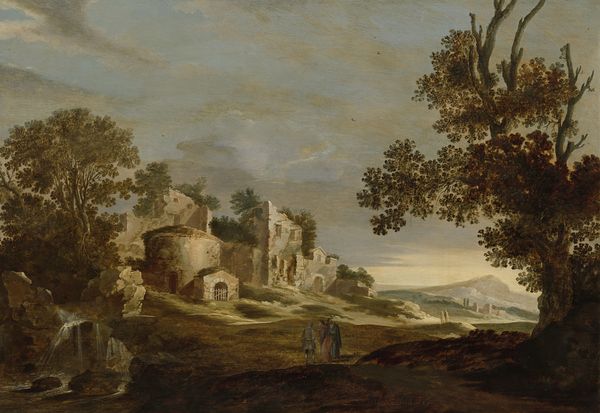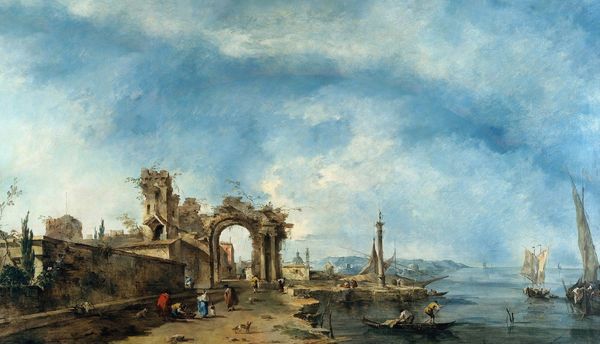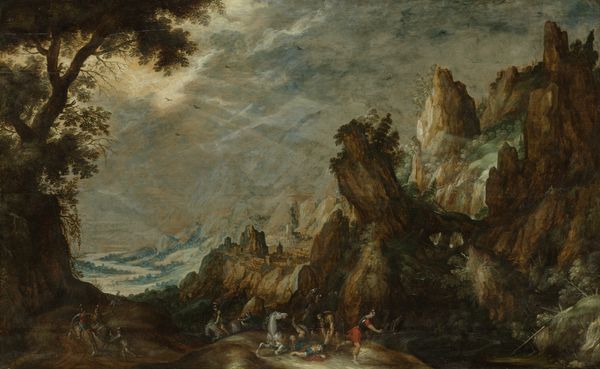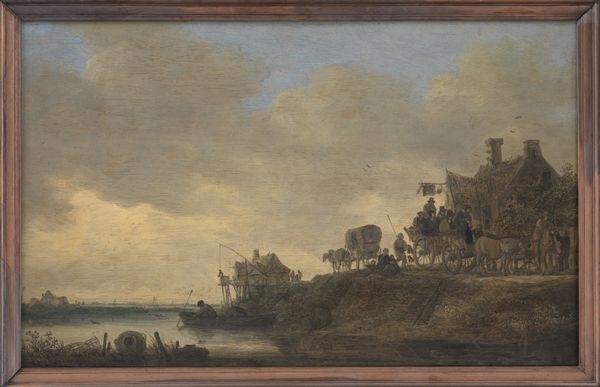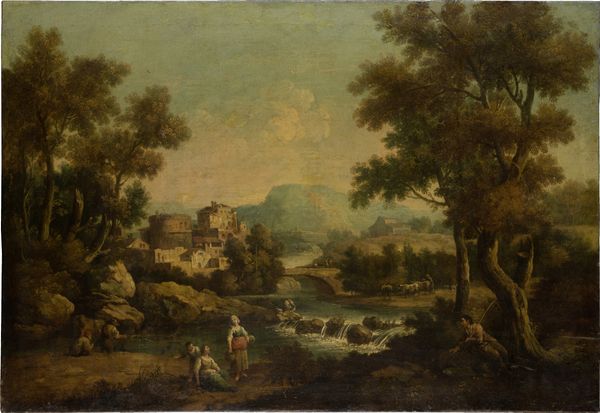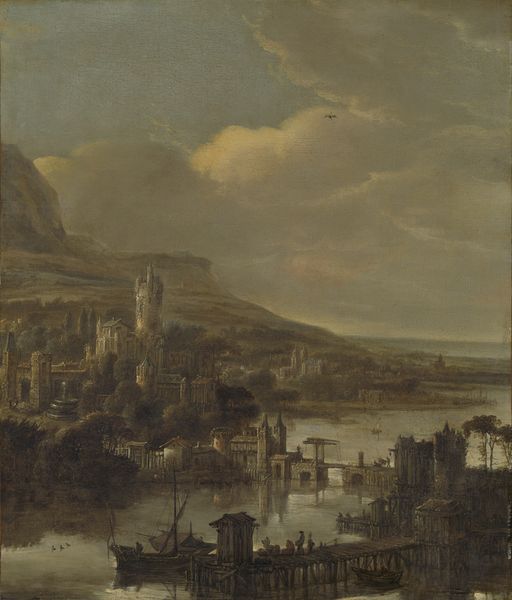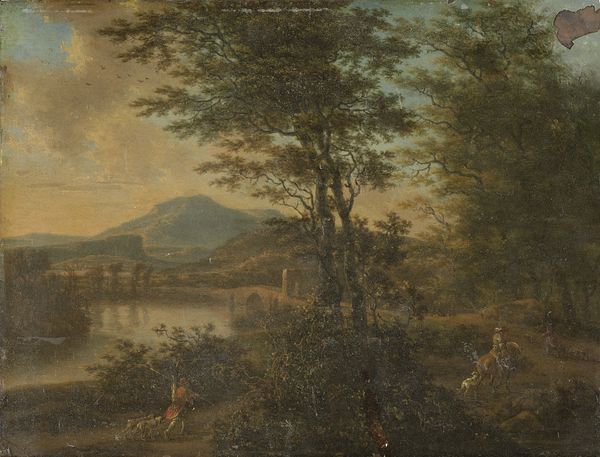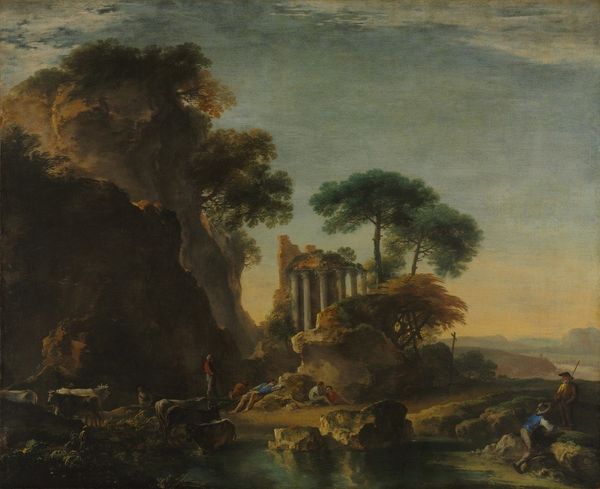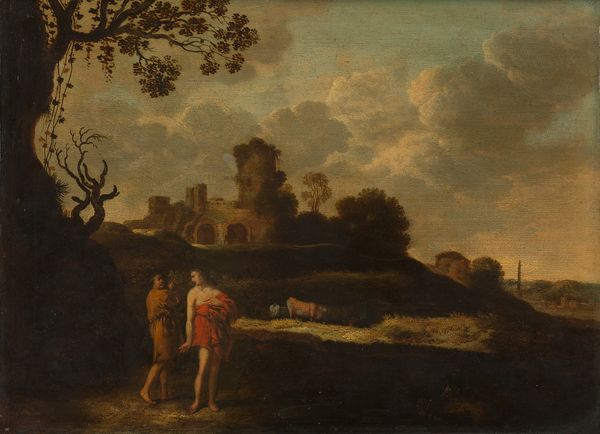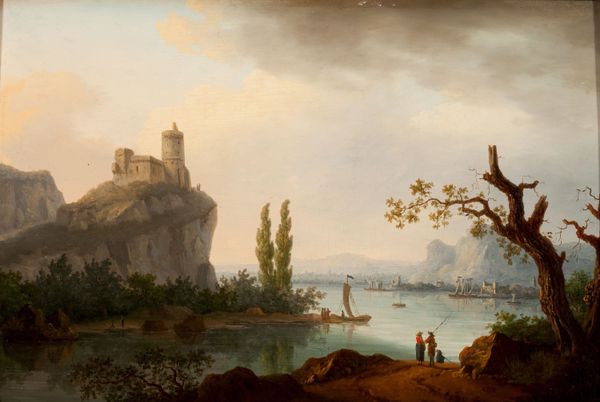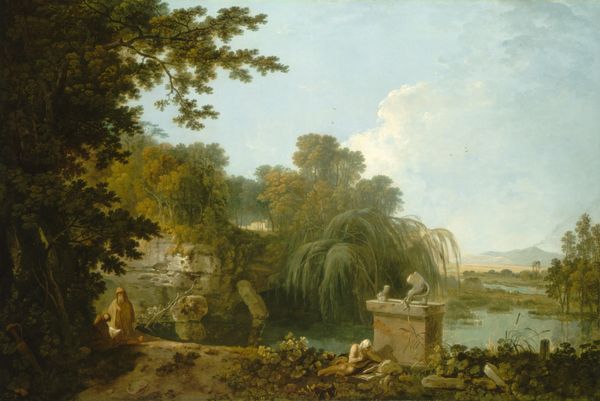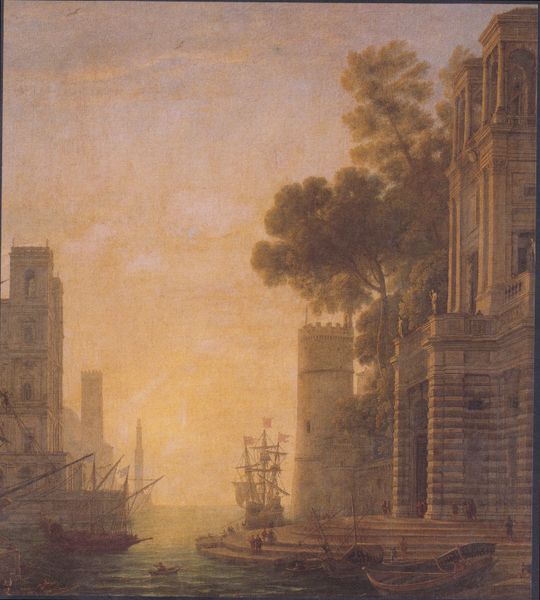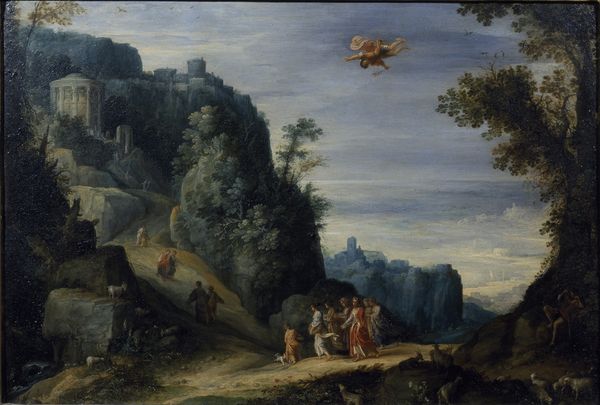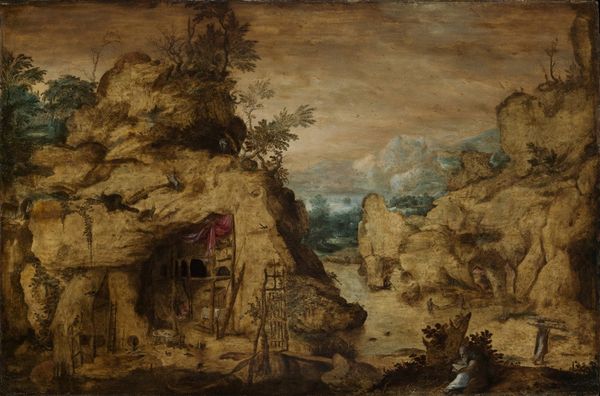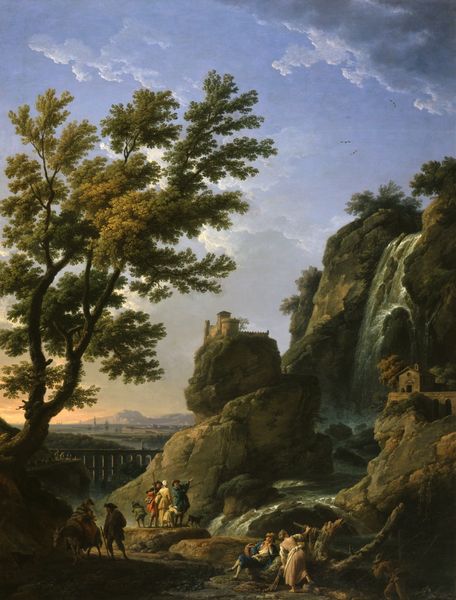
Dimensions: Irregular, 61 1/4 x 74 1/2 in. (155.6 x 189.2 cm)
Copyright: Public Domain
Curator: Welcome. We're standing before Francesco Guardi's "Fantastic Landscape," an oil on canvas thought to be painted between 1760 and 1770, now residing at the Metropolitan Museum of Art. Editor: Immediately, what strikes me is the lightness of touch. The atmosphere feels incredibly airy and unrestrained; there's a delicate balance between architectural form and the fluidity of the landscape. Curator: Indeed. It's key to remember the historical context. Guardi, working in Venice, operated within a society grappling with decline yet clinging to its opulent traditions. His landscapes, while seemingly idyllic, can be seen as reflecting that societal tension. Consider the figures in the foreground—they're small, almost swallowed by the decaying grandeur surrounding them. It could be read as a subtle commentary on social dynamics, perhaps? Editor: I see your point, but I find the crumbling ruins more about the aesthetic, the pure visual poetry, of decay itself. Look at how Guardi uses rapid brushstrokes to capture the crumbling stonework, blurring the lines between structure and nature. The colours, those faded ochres and blues, evoke a particular kind of nostalgic longing— a wistful glance back to a glorious past perhaps. It's visually compelling! Curator: I agree about Guardi's technique. However, let's also consider who would have purchased such a scene. These "fantastic landscapes," although romanticized, also masked the harsh realities of Venetian life for the aristocracy. Were these artworks a means of psychological escape, or perhaps a deliberate act of historical denial? Who is this landscape *for*? Editor: Regardless of the potential for denial, there is the composition itself! The light plays beautifully on the water and the structures. Guardi's choice of the Rococo style is really clear. It does a wonderful job capturing the subtle interplay between the classical ruins and the organic overgrowth of the natural landscape, and how his delicate brushwork creates such a sense of ethereal beauty! Curator: True! Ultimately, Guardi provides a potent invitation to contemplate the intersections of social reality and aesthetic escapism. Editor: It makes you consider how sometimes an aesthetic impulse is its own sort of reality...
Comments
No comments
Be the first to comment and join the conversation on the ultimate creative platform.
